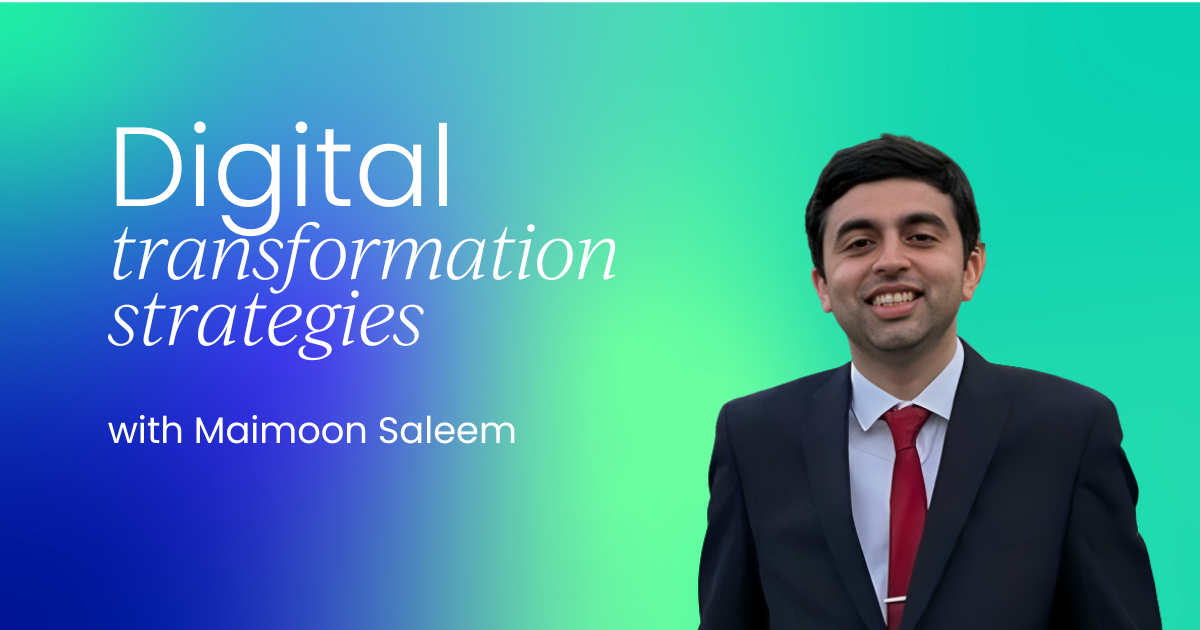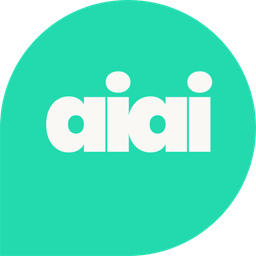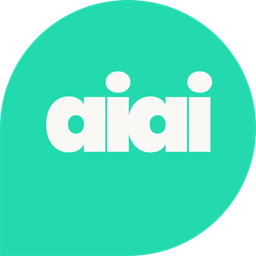Artificial intelligence (AI) is no longer the stuff of science fiction; it is already firmly established at the core of industries, changing how businesses function, make decisions, and provide value to customers.
AI continues to impact industries across the board, from manufacturing and retail to healthcare and finance. But with such quick technical development comes the urgent need for an AI-ready workforce that can fully use these developments.
The difficulties and opportunities that various businesses confront as they train their workforce for the AI future are explored in this article. The need for knowledgeable AI specialists is growing rapidly as AI is more and more incorporated into everyday activities.
However, there is a severe skills shortage, and many workers are unprepared for the adjustments AI will surely make to their job functions. In this context, we will explore the difficulties in developing a workforce that is AI-ready and the approaches that can assist businesses in overcoming these obstacles.
The article also emphasizes the positive aspects of this AI revolution, focusing on the benefits that sectors might realize from developing a workforce that is equipped to make use of AI's capabilities.
It also analyzes how government regulations have shaped the environment of the AI workforce and provides information on upcoming developments in AI workforce development. This article serves as a compass to navigate the always-changing terrain of AI-driven workplaces in a world where AI's effect on sectors is expected to increase.
The AI revolution in industries
Artificial intelligence has quickly transformed from a specialized field of technology to a pervasive force that is upending entire sectors of the global economy.
Smart algorithms, machine learning, and data-driven decision-making have been included in the fundamental business processes as part of this AI revolution. Industries that formerly depended on conventional techniques are now undergoing a fundamental transition as they use AI to obtain a competitive advantage and solve difficult problems.
Through predictive analytics, early illness identification, and improved medication discovery, artificial intelligence (AI) in healthcare is increasing patient care. In the world of finance, this entails automating repetitive procedures, identifying fraudulent activity, and improving investment methods.
Smart factories are becoming more common in manufacturing, as AI-powered robots and systems improve production efficiency and quality control. AI is used in retail to make customized product suggestions and manage inventories, while AI-enabled precision farming methods assist agriculture.
These illustrations just begin to scrape the surface of AI's impact. Although AI is not a panacea, it does have the potential to improve productivity, accuracy, and creativity.
It enables enterprises to extract insights from enormous databases, automate tedious operations, and develop totally new business models. Industries need to adapt and change as AI's influence spreads in order to compete in this changing environment. To manage the difficulties and take advantage of the enormous potential given by the AI revolution, it is crucial to develop a workforce that comprehends, values, and uses AI.

The need for an AI-ready workforce
An AI-ready workforce is more important than ever in the age of AI. A traditional skill set is no longer adequate to succeed in the modern workplace as firms integrate AI technology into their operations, goods, and services.
This section explores the persuasive arguments for why it is crucial for businesses to have an AI-ready workforce.
A. The pervasiveness of AI
AI across industries: AI is no longer just used in tech-related industries. From healthcare and banking to education and transportation, it has impacted almost every sector of the economy and profoundly altered how work is done.
Automating routine tasks: Artificial intelligence (AI) may automate tedious and routine processes, freeing up human workers to concentrate on more innovative and value-added jobs.

B. Competitive advantage and innovation
Staying competitive: By increasing productivity, cutting costs, and offering cutting-edge goods and services that fit changing consumer expectations, businesses that use AI gain a competitive edge.
Adaptation to market dynamics: An AI-ready workforce is essential for firms to be able to pivot, expand, and stay relevant as market dynamics change quickly.
C. Skill gap and job evolution
Emerging job roles: As a result of the AI revolution, new professions like data scientists, machine learning engineers, and AI ethics specialists are emerging that call for expertise in AI.
Reskilling: As AI improves human skills, current work positions are shifting. To work effectively with AI technologies, employees must develop new abilities.
D. Maximizing AI's potential
Unlocking AI's full potential: When a company's staff knows how to utilize AI tools, comprehend insights produced by AI, and make data-driven choices, it can fully realize the potential of AI.
Minimizing resistance: An AI-ready workforce lowers opposition to AI adoption, creating an innovative and ever-improving culture within enterprises.
As a result of AI's pervasiveness, its revolutionary potential, and the necessity for sectors to remain competitive and adaptive in a quickly changing environment, there is a clear need for an AI-ready workforce. The difficulties and methods involved in creating such a workforce will be covered in the sections that follow.
Challenges in preparing an AI-ready workforce
Although there is an evident need for a workforce that is AI-ready, businesses, and sectors face significant obstacles as they set out on this transformational journey. To properly prepare the workforce for the AI future, it is crucial to recognize and solve these difficulties.
A. Shortage of AI talent
Skills gap: The abilities needed for jobs using AI and those that are already accessible in the workforce are significantly different. Finding people with the appropriate knowledge is a significant challenge.
Competition for talent: The tight rivalry among businesses to recruit and keep talent as a result of the high demand for AI specialists has raised compensation expectations.
B. Resistance to change and fear of job displacement
Employee apprehension: Many workers worry that the introduction of AI might result in job loss. This apprehension may make people reluctant to learn new AI-related technology and abilities.
Cultural shift: It might be challenging to change an organization's culture so that it accepts AI and continuous learning.
C. Budget constraints and resource limitations
Cost of training: It might be expensive to invest in AI education and training programs. Allocating resources for this reason may be particularly difficult for small and medium-sized businesses (SMEs).
Infrastructure and technology: A large infrastructure and resource commitment is needed to implement AI tools and technologies, which may not be realistic for many enterprises.
D. Ethical and privacy concerns
Bias and fairness: A complicated task, ensuring fairness and objectivity in AI systems needs care to avoid discriminating outcomes.
Data privacy: Massive volumes of data handling generate privacy and security issues, needing strict regulations and procedures.
Regulatory compliance: Organizations must negotiate the problem of adhering to ethical norms and laws governing AI that are constantly changing.
A complex strategy, including strategic planning, spending on education and training, encouraging a culture of adaption, and proactive engagement with ethical and privacy issues, is needed to address these difficulties.
To fully utilize AI technology and keep their competitive edge, industries must continue to be dedicated to developing an AI-ready workforce in the face of these challenges. The ways to meet these issues will be covered in the section that follows.
Strategies for overcoming challenges
Organizations and sectors must implement proactive measures to handle the significant difficulties of developing an AI-ready workforce:
Investment in education and training: Allocate funds to develop thorough AI education and training programs, both internally and through collaborations with academic institutions, in order to retrain and upskill personnel.
Collaboration between academia and industry: To guarantee that educational curricula are in line with the changing needs of the labor market and produce graduates with pertinent AI capabilities, encourage collaboration between academics and industry.
Cultivate a culture of continuous learning: To make adopting AI less daunting, foster a culture at work that values ongoing learning, experimentation, and adaptability.
Responsible AI practices: Focus on developing AI responsibly by tackling prejudice, protecting data privacy, and abiding by moral and legal requirements.
Organizations may overcome the challenges of developing a workforce that is AI-ready and put themselves in a position to succeed in the AI-driven future by putting these tactics into practice.
Opportunities for industries
A wide range of prospects for development and innovation are presented by the integration of AI into several sectors. A firm may maintain its competitive edge by utilizing an AI-ready workforce to optimize processes, increase productivity, and save expenses.
Additionally, by providing AI-driven goods and services, improving consumer experiences through personalization, and making data-informed strategic choices, organizations might investigate new income streams.
In an AI-driven environment, industries have the opportunity to not only improve on their current business models but also to lead ground-breaking innovations that will eventually change how they conduct business and engage with their customers.
Case Studies
Here we discussed some notable examples of successful AI-ready workforce preparation case studies:
Woxsen University, Hyderabad, India
Woxsen University, a provider of educational services, has made considerable expenditures in developing its workforce's AI expertise. AI Research Centre powered by Brandscapes Worldwide Pvt., Ltd., launched in 2021 offers a variety of AI courses that cover machine learning and natural language processing.
A Center of Excellence and Knowledge Centre has also been formed by Woxsen University, encouraging cooperation among international specialists for information sharing and the promotion of best practices. These initiatives have made it possible for Woxsen University to develop a highly skilled workforce capable of utilizing AI to efficiently handle both academic and business concerns.
Accenture
Accenture, a multinational provider of professional services, has extensively invested in preparing its workers for AI. It introduced an AI Academy in 2020 that provides training in a range of AI subjects, including machine learning and natural language processing.
A Center for AI Excellence has also been established by the business, bringing together specialists from several Accenture divisions to exchange expertise and best practices. Accenture has been able to create a workforce that is well-equipped to employ AI to address business challenges as a consequence of these efforts.
Bank of America
The industry leader in financial services, Bank of America, has likewise committed significantly to preparing its personnel for AI. It declared a goal to train 100,000 employees in AI by 2025 in its 2021 announcement.
The business provides a range of training initiatives, such as online courses, live seminars, and on-the-job training. In order to create new AI-powered goods and services, Bank of America is also making investments in AI research and development.
General Electric
General Electric, a massive industrial company, is transforming its operations with AI. The business has created AI-powered solutions for a range of jobs, including supply chain management, quality assurance, and predictive maintenance. Additionally, GE is training its staff in new capabilities using AI. It opened an AI Academy in 2020 with classes on subjects including data science and machine learning.
Walmart
Walmart, a major retailer, is utilizing AI to enhance both its operations and customer service. The business has created chatbots using AI that can solve problems and respond to client inquiries. Walmart is utilizing AI to streamline its supply chain and enhance inventory control. In order to create new goods and services that are driven by AI, the firm is investing in AI research and development.
UnitedHealth Group
UnitedHealth Group, a major player in the healthcare industry, is employing AI to raise the standard of care it offers. For a range of functions, including predictive analytics, clinical decision support, and patient interaction, the business has created AI-powered products.
Additionally, UnitedHealth Group is training its personnel in new capabilities using AI. It introduced an AI Academy in 2021 that provides training in subjects like machine learning and natural language processing.
These are just a handful of the many companies that are funding worker preparedness for AI. technology is obvious and being able to use AI properly will become more and more crucial as technology continues to develop. These businesses are setting themselves up for success in the AI future by investing in research and development and upskilling their workforce.
The role of government and policy
The evolution of the AI workforce is significantly shaped by government and policy. The aim of policymakers is to foster the development of AI capabilities while preserving ethical and privacy concerns.
Their duties include creating rules that guarantee ethical AI activities, encouraging cooperation between academic institutions and businesses, and offering incentives for businesses to spend money on AI education and training.
Additionally, by giving funds for research and development, supporting programs that close the AI skill gap, and encouraging the diffusion of AI knowledge to guarantee equal access to opportunities in an AI-driven future, governments may help prepare the workforce for AI.
Future trends in AI workforce development
The evolution of the AI workforce is expected to be dynamic and ever-changing in the future. This landscape is anticipated to be shaped by a number of significant trends.
AI-first curriculum: Institutions of higher learning will include AI and data science in core courses, ensuring that graduates have a solid understanding of AI.
AI ethics specialization: Specialized jobs and training programs to handle ethical issues in AI research and deployment will result from an increasing emphasis on AI ethics.
Remote learning and online credentials: AI education will become more widely available as remote learning and digital credentials continue to grow in popularity.
Public-private partnerships: To close the AI skills gap and spur innovation, government, academic, and industrial partnerships will multiply.
Lifelong learning: As professionals constantly upgrade their skills to be relevant in settings improved by AI, lifelong learning will become the norm.
These patterns emphasize the value of flexibility and ongoing education for the AI workforce of the future.
Conclusion
In conclusion, the AI revolution has transformed from a science fiction concept to an unavoidable reality with significant ramifications for global business sectors. It is more important than ever to train a workforce that is AI-ready.
AI presents both potential and difficulties as it continues to enter every part of the business. Although there are many challenges, like a lack of skilled AI workers and ethical issues, there are also many benefits, including increased creativity and competitiveness.
Organizations must make educational investments, encourage cooperation, cultivate a culture of lifelong learning, and give priority to ethical AI practices in order to meet these difficulties. Developing policies that facilitate fair access to AI education and promote responsible AI deployment are major responsibilities of governments.
As we look to the future, the key to success is ensuring that the labor force is capable of utilizing AI's disruptive potential while preserving ethics and creativity. The growth of the AI workforce emphasizes the importance of adaptability and lifelong learning.
The industry may not only flourish but also spearhead ground-breaking technologies that will transform our world in the AI-driven future by adhering to these values and cooperating.



 Follow us on LinkedIn
Follow us on LinkedIn




